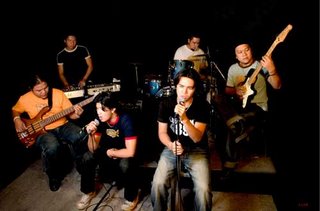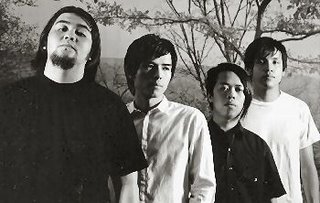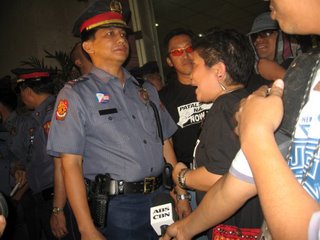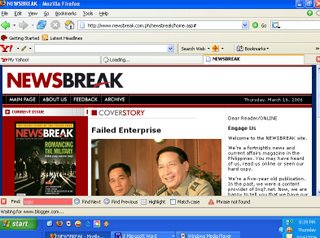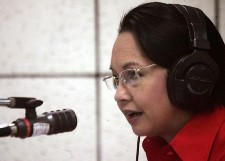Here comes media organizations the
Asian Journalists Association,
International News Safety Institute (INSI),
Center for Community Journalism and Development (CCJD), and Article 3 Alliance with their statements on the continued clampdown on the media.
Statement of Solidarity from AJA At a time of popular unrest, the Arroyo Administration has found it fit to go against its democratic grain by encroaching upon the time-honoured sanctity of the free Press for which the Philippines has long been lauded in Asia.
The police raids on a newspaper office and a printing press for alleged unexplained offences; and warnings to the media against violating of “standards” were clearly attempts to stifle free expression guaranteed under the Philippine Constitution.
The Asian Journalists Association (AJA) joins the National Press Club and the Philippine Press Institute in calling upon the authorities to stop intimidating journalists and the media organizations.
We urge President Gloria Arroyo Macapagal to respect the professional right and duty of our fellows journalist to report political events without fear or favour.
In declaring our solidarity with our fellow media practitioners in the Philippines, we are confident that they would stay the course in defence of their rights and continue to play their part in upholding the nation’s democracy and freedom as enshrined in the Constitution.
Invasion of the Sanctity of the Press -- INSIThe International News Safety Institute (INSI)-Southeast Asia Office views with alarm and dismay the government's continuing harassment of media organizations and journalists despite the lifting of the state of national emergency last March 3.
INSI Regional Director Red Batario said, "The recent attempts of the police to obtain warrants to search the premises of the Philippine Center for Investigative Journalism (PCIJ), the closure of the award-winning radio program
Ngayon na Bayan aired over dzRJ, and the subpoena served on television station ABC 5 are chilling manifestations of the state's abridgement of the fundamental right of the press to freely report."
On March 13, sound engineer Jonathan Tiongco, accompanied by three policemen, asked Quezon City Judge Alan Balot to issue a warrant to search PCIJ's office, apparently in connection with a charge of inciting to sedition. Judge Balot denied Tiongco's request. This is
the second time his request for a search warrant was denied. According to the PCIJ, an earlier application on March 10 was turned down by another Quezon City judge.
Ngayon na Bayan, recipient of the 2002 Golden Dove Award for best public affairs program from the Kapisanan ng mga Brodkaster ng Pilipinas (KBP), was cancelled over dzRJ because of "personal political differences" with the station owner, Ramon Jacinto. The program, which used to air from Monday to Friday from 2:30 p.m. to 4 p.m., lost its block time last February 24, hours after President Gloria Macapagal-Arroyo declared a state of national emergency.
Then National Bureau of Investigation (NBI) Acting Director Nestor Mantaring asked ABC 5's Chief Operating Officer and Executive Vice President Regalado Galura to submit a videotape in which Brig. Gen. Danilo Lim announced his withdrawal of support from the Arroyo
government.
INSI calls on the Arroyo administration to stop these attempts to silent the press and uphold freedoms enshrined in the Constitution.
The International News Safety Institute (INSI) in Brussels, Belgium, a global network dedicated to the safety of journalists and media staff and committed to fighting the persecution of journalists everywhere.
The Institute is a coalition of media organizations, press freedom groups, unions and humanitarian campaigners working to create a culture of safety in media in all corners of the world.
Invasion of the Sanctity of the Press -- CCJDThe Center for Community Journalism and Development (CCJD) is alarmed by the government's continuing harassment of media organizations and journalists despite the lifting of the state of national emergency last March 3.
The recent attempts of the police to obtain warrants to search the premises of the Philippine Center for Investigative Journalism (PCIJ), the closure of the award-winning radio program
Ngayon na Bayan aired over dzRJ, and the National Bureau of Investigation's request to television station ABC 5 to turn over a video tape are chilling manifestations of the state's abridgement of the fundamental right of the press to freely report.
On March 13, sound engineer Jonathan Tiongco, accompanied by three policemen, asked Quezon City Judge Alan Balot to issue a warrant to search the Philippine Center for Investigative Journalism's (PCIJ) office, apparently in connection with an inciting to sedition charge Tiongco filed against the media organization.
Tiongco was presented last year to the media by former Environment Secretary and now Presidential Chief of Staff Michael Defensor, apparently to discredit the "Hello Garci" tapes—the recordings that suggested Ms. Arroyo cheated in the 2004 presidential elections.
Judge Balot denied Tiongco's request, the second time he did so. PCIJ said Tiongco's earlier application on March 10 was turned down by another Quezon City judge.
The radio program
Ngayon na Bayan aired over DZRJ and recipient of the KBP 2002 Golden Dove Award for best public affairs program was taken off the air hours after President Arroyo issued Proclamation 1017. The police presented last March 13 a hooded witness who claimed that Kodao Productions Inc., producers of the radio program, was a propaganda arm of the Communist Party of the Philippines.
Reports received by the CCJD also showed that ABC 5 Television is being pressed by the National Bureau of Investigation (NBI) to submit video footage purportedly showing an Army Scout Rangers general announcing his withdrawal of support from the Arroyo government.
The CCJD condemns in the strongest terms these brazen attempts to harass, intimidate and suppress the media. It joins voices calling for the Arroyo administration to uphold the freedoms enshrined in the Constitution and to observe the guarantees provided by international human rights instruments.
The continuing harassment of the media has very serious implications for the citizens' right to know and for the survival of democracy itself.
The Center for Community Journalism and Development is a non-government, non-profit media organization working with journalists, citizens and institutions for social change. It is also the Southeast Asia office of the International News Safety Institute (INSI) based in Brussels, Belgium.
We will not be cowed! -- Article 3 AllianceIt is all too clear that the Arroyo administration's main target are the media and the People's Right to Know, as much as, maybe even more so, than the sundry "destabilizers" from the Left, Right and all corners of the political spectrum.
It is no coincidence that applications for a search warrant have been filed and sedition charges are being poised against the Philippine Center for Investigative Journalism even as the National Union of Journalists of the Philippines reported receiving a tip Monday evening from colleagues that the Armed Forces of the Philippines was planning to raid its national office in Quezon City.
Nor is it a coincidence that Presidential Chief of Staff Michael Defensor warned of government's intention to charge "certain media personalities" with sedition.
It is likewise no coincidence that the award-winning program
Ngayon na Bayan of Kodao Productions was unceremoniously and arbitrarily "suspended until further notice" by dzRJ, owned by Arroyo ally Ramon Jacinto, just hours after the President's declaration of a state of national emergency and later tagged as a "propaganda arm" of the Communist Party of the
Philippinesby the shadowy Jaime Fuentes, the government's putative star witness against
the Left-Right coup plotters.
Before these, of course, were the raid on
The Daily Tribune and the subsequent filing of sedition charges against publisher Ninez Cacho Olivares and two of the papers' columnists, the deployment of troops to major broadcast networks during the state of emergency, the continued monitoring of media output for "seditious" content, the threats by the Armed Forces to
file charges against the
Philippine Daily Inquirer.
In Gloria Macapagal-Arroyo's Philippines, incidents like these have increasingly become all in a day's work for the media, along with the growing list of journalists' murders, the most under any administration.
Punctuating this is the still unsolved abduction last March 3 of Aurora broadcaster Joey Estriber by armed men we strongly suspect to be military agents and the acquittal three days later in General Santos City of Ephraim Englis, prime suspect in the June 2004 murder of Ely Binoya.
Whenever beleaguered governments turn to tyranny to cling to power, the first target has always been the Press, believing that control of the free flow of information means control of the Truth. But, as our experience with dictatorship has proven, nothing can truly contain the Truth.
And this time, armed with the lessons of recent history, the Philippine media will no longer be cowed.
Indeed, the administration's worst threats, far from creating the chilling effect it no doubt intended, have only united the media and strengthened our resolve to resist any and all attempts to prevent us from the free exercise of our profession.
In Gloria Macapagal-Arroyo's Philippines, such threats and attempts have become not brands of shame but badges of honor.
We harbor no doubts about the resolve of our colleagues in the PCIJ, NUJP, Kodao,
Daily Tribune,
Inquirer and all other threatened and targeted media outfits and organizations to stand firm against this administration's attempts to clamp down on a free Press.
To them, Article 3, the alliance of Negros journalists asserting Press Freedom and the People's Right to Know, extends our fraternal support as we call on our colleagues nationwide to remain steadfast in the defense of our rights and liberties against all efforts to force us into silence.
To the audiences we serve, we renew our commitment to providing them with the timely, accurate and relevant information they require and deserve.
